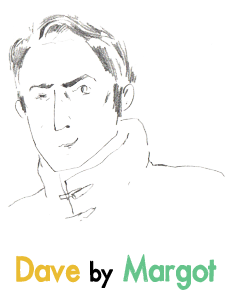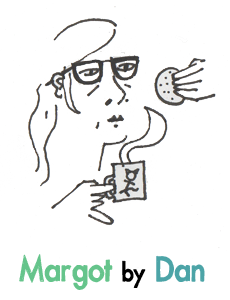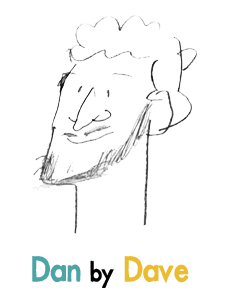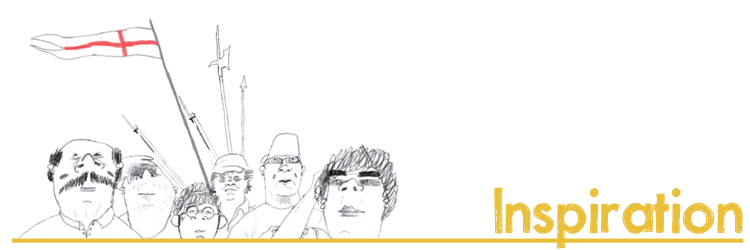This month’s entry in our TheyAreAnimators series really puts the focus on the “they”, as we talk all things animation with not one, but three talented filmmakers. The Moth Collective is a London-based award-winning animation/illustration collective set up by three graduates of the Royal College of Art. ‘Mothsters’ Dan, Dave and Margot join us to talk working as a collective, studying at the RCA, the buzz of screening in front of a festival audience and being persistent like moths.



MARGOT: There are three of us, David Prosser, Daniel Chester and Marie-Margaux Tsakiri-Scanatovits. We all met at the Royal College of Art in 2008, where we did an MA in Animation. Since then we knew that we had the same interests within the field and that drawing was very important to our work. Daniel and Dave worked on a music video together for NinjaTune while at the RCA, and as they enjoyed working together they decided to keep collaborating after graduation. They asked me if I was interested in joining them as a collective, and that was how Moth was born.
It is very inspiring to work next to such talented people, as it brings your work into a certain perspective. You realise there is a certain standard you need to achieve, and thus you work with that in mind, even after you graduate. What was great about that course is how much we learned from each other and how much we helped each other too, with our individual projects. What is great nowadays is that we still chose to work together, as we have built a relationship not only of friendship, but also of trust.
“From the beginning we wanted to be ‘Moth Collective’ rather than a set of directors working under one roof”
DANIEL: Directing duties is really something that differs from project to project. The most important thing is that we always come together right at the start of the project and go through all those pre-production processes as a team, and from then on its more a case of someone taking on a role that is most suited for that particular piece. From the beginning we wanted to be ‘Moth Collective’ rather than a set of directors working under one roof, which I think gives us a lot of flexibility and brings interesting projects our way. In terms of skills and approaches we are all actually pretty similar. This means we can easily float between roles and produce work that is collaborative in design and technique. Of course what makes it interesting is the little differences we have and can bring to a project, sharing creative control isn’t always natural for an animation director, so that’s something you really have to nurture in a collective like this.

DAVE: I came in sideways. While studying a degree in illustration I was encouraged by our visiting lecturers, LE GUN collective, to start making my drawings into sequential narratives. These became books which in turn became a final year animation, and then I was off! I never quite had that obsessive comic book nurturing that animators often have, I did however have a healthy obsession with the Beano. I’m doing a lot of catching up these days…
DANIEL: After deciding I wouldn’t pursue palaeontology or politics, animation just seemed like the perfect form to spew out anything and everything. It was something that had always occupied some remote corner of my mind, so once I grew out of the idea it was just for making cool explosions and I realised that you could explore narrative and aesthetics in a very personal way, I was set.
DAVE: The RCA was a special place to study and attracts some very talented people. Working in such an intense environment over two years you make some dear friends and learn a lot from the students – more so in some cases than from the tutors. You grow up quick there. What’s inspirational is that we can continue the working environment established at the RCA via Moth, continue seeking the advice from friends and share in the successes of our contemporaries.

MARGOT: I was always a big fan of Disney movies and metro Goldwyn Mayer Cartoons as a child, and although I knew I wanted to be part of this I didn’t quite understand how it was made, until I watched a ‘making of’ in the end of the Lion King tape I had. I saw them flipping a stack of paper and Mufasa coming to life, and other animators going to the zoo to do studies of meerkats. So I knew it was something I would enjoy. Later in life I realised it was just a great way of combining my interest in drawing and my interest in story telling at the same time.
“I think my greatest inspirations are my closest friends. I always admire what they are producing and it is what pushes me to work harder”
I have so far been inspired by human relationships and the complications behind them, especially by my familial circle. I am not so interested in fiction maybe, because I feel more comfortable talking about what I know well and what I feel I can describe truthfully. I also think it is quite useful to distance oneself from the city or environment you live in, in order to reflect on things. I used to be so inspired by London, but after living here for so long I take it for granted. I always notice how much more creative I feel once I go travelling and I am surrounded by new things, people and situations. In terms of people, I think my greatest inspirations are my closest friends. I always admire what they are producing and it is what pushes me to work harder.
DAVE: I’d have to agree with Margot in that we’re lucky to have a host of super talented chums that constantly remind you to keep pushing yourself and show you what is obtainable.
DANIEL: I have a book of the 1001 films to watch before you die, so I’m just working my way through that, so far I’ve done about 240. Apart from that, anything that relates to a sense of identity, be that nationalism, political or religious heritage, and the family and friends around you.

DANIEL: I think our work is connected in the sense of how personal it is to each of us. We use animation to question and explore our cultural and personal heritage. As Dave mentions we approach this in different ways, but I think there is a theme running deep down somewhere. Also Moths are very persistent, banging their heads against light bulbs until something, or nothing, eventually happens.
DAVE: Hopefully they compliment each other quite comfortably. All three of us have different approaches to storytelling, be that documentary, fictional or observational, but we all have a similar sensibility with directing. I guess that’s where the name Moth Collective originated, moths being quiet, gentle and fragile. There’s also the fact that drawing, for all of us, has always been at the centre of our practice.

MARGOT: Websites such as Short of the Week, Vimeo, Motionographer, Its Nice That and the Animade blog, have been hugely important in supporting our work [Hopefully you’ll now add DN to that list Margot], something which we are incredibly grateful for. Festivals are of course very important in showcasing people’s work, however online distribution is so crucial nowadays, and has created a new way of getting in touch with people and meeting fellow animators. It also brings animation closer to people who are not necessarily involved in it and who would otherwise not have seen most of these films. We usually tend to ask our clients where they saw our work in the first place, and it is usually through one of the above websites, or the RCA show. It is also very important to support people whose work you admire through blogging or social networking, the way other blogs would do it with your work. Independent animation after all is a small industry, and if there is anything we can do to support each other, then it should be done.
“In an age where people tend to pause films and move on to the next one, being confined in a dark room and having to watch what has been selected for you, is a very educational experience”.
Festivals are always great events to attend, and the energy you get from seeing a number of great films and meeting such interesting people, is a very special one. Seeing a film on the big screen and with proper sound, is a very different experience from watching it online on a laptop. In an age where people tend to pause films and move on to the next one, being confined in a dark room and having to watch what has been selected for you, is a very educational experience. We need to be taught how to be respectful towards filmmaking again, how to be patient, and how to find positive qualities in work that might not be necessarily of our taste. I have seen films in festivals that I could have dismissed if seen them online, just for stylistic reasons, but I then discovered how great their storyline was. We have tried to go to as many festivals as we could to present our films, both in the UK and also worldwide. Dave just came back from Bradford Animation Festival actually, where his new film Mountain was shown.
DAVE: Watching things online there’s always the temptation to scrub through if it doesn’t immediately capture your attention and I’ve probably missed some great shorts because of that. I think really they are two separate things, it’s now obviously not obligatory for your film to do the festival circuit for it to be seen. Yet festivals still carry prestige and it’s important for it to be seen in front of a captive audience, in its native environment. Festivals are necessary to blow of some steam after making a film and meet the wonderful people that spend their time making these things.
DANIEL: I think the benefits of a festival lie truly in that space it can create to discuss work in person. You really have more of a collective experience when you spend time in one place with a group, and it helps slow everything down giving you time to think and take it all in. Online distribution of course has enormous benefits and we wouldn’t be where we are without it.


